
The gold medal awarded to the Nobel laureate each year - Photo: AFP
Speaking to Tuổi Trẻ newspaper, historian Gustav Källstrand – senior curator of the Nobel Museum (Sweden) – affirmed that the 2025 Nobel season has revived the most essential values of this prestigious award, demonstrating the timeless vision of inventor Alfred Nobel.
Mr. Källstrand is a leading expert on the history of the Nobel Prize, with decades of research and extensive knowledge of the traditions, awarding process, and cultural heritage of this prestigious prize.
Alfred Nobel's dream lives on.
* Could you please share your assessment of the achievements awarded this year's Nobel Prize? What impressed you the most?
- I'd like to start with the Nobel Prize in Economics . This award is particularly interesting as it was given to economic historian Joel Mokyr, who demonstrated how knowledge and ideas can drive economic growth. In other words, this year's Nobel Prize honors how ideas change the world.
The annual Nobel Prize ceremony typically begins by recalling the late Nobel laureate's wish that scientific knowledge and contributions to peace and literature could make the world a better place.
This year's Nobel Prize in Economics has proven that Alfred Nobel's dream is not only still "alive" but also entirely valid. On a deeper level, it demonstrates how advances in knowledge can create growth, and how ideas truly change the world .
Turning to the Physics prize, we see the far-sighted vision of the Nobel Prize. The scientists who won the prize began their experiments 40 years ago, stemming from pure curiosity: could materials in this world behave as strangely as particles in the quantum world?
At the time, no one thought this would have practical applications. But now, these strange quantum phenomena are creating pioneering technologies in science such as quantum cryptography and quantum computers.
For me, this is the highlight of this year's Nobel Prize: the idea that can change the world. Even the most seemingly impractical research, stemming from mere curiosity, can change the world when given the right circumstances.
The Nobel Prize is not an award honoring a scientist's lifetime contributions. It honors specific ideas and discoveries that have transformed the world. When this year's Nobel Prize-winning discoveries in Physics were made 40 years ago, they couldn't have received the award because, while interesting, they weren't significant enough at the time. Now, it's clear they laid the foundation for a new area of research and technology. That's why now is the right time to honor them.
* Do you think there will be more Nobel Prize categories in the future, especially as technology is changing the world more and more dramatically?
- I don't think the Nobel Prize should have any more categories. Keeping the current categories is reasonable because if we kept adding categories to ensure fairness across all scientific fields, it would never end. Even with only three natural science categories (physics, chemistry, and biomedical science), the Nobel Prize has maintained its prestige for over a century.
It's important to understand that the Nobel Prize focuses on honoring fundamental scientific discoveries, the foundational ideas from which later technologies are developed. For example, the 2024 Nobel Prize in Physics was awarded for machine learning models – the theoretical foundation for artificial intelligence (AI). Previously, the award was given for transistors and integrated circuits – the cornerstone of electronics.
The Nobel Prize intentionally places less emphasis on the process of transforming fundamental discoveries into practical applications. This is a complex process requiring technical and applied science expertise, but it is not the focus of the award. Instead, the prize aims to honor fundamental breakthroughs in science, ideas that change the way we view the world, rather than their commercialization.
Therefore, the Nobel Foundation encourages the establishment of separate awards for applied technology, rather than expecting the Nobel Prize to cover every field.
Nobel laureates in Vietnam and everywhere else.

Historian Gustav Källstrand - Photo: Volante
* What lessons can Vietnam learn from this year's Nobel Prize in promoting development based on science, technology, and innovation, and how can it nurture Nobel-level talent?
- I want to emphasize the nurturing of talent at the Nobel level. That talent already exists in Vietnam and everywhere else; the important thing is to provide them with the environment and path to thrive. Investing in universities, research, and innovative businesses is essential. Today, many Nobel laureates come from the industrial sector.
Thirteen years ago, many scientists were aristocrats because they needed wealth to participate in research. Today at university, you get to live in a scientist's environment and have access to funding. The Nobel Prize illustrates the importance of creating these opportunities.
Everyone knows that the Nobel Prize also has a bit of luck involved. This award, like any innovation or success, requires, to some extent, being in the right place at the right time. But of course, if there were more right places, we would have more people in the right place at the right time. Therefore, we need to create more opportunities and more pathways to science.
Looking at this year's awards, the intersection between economics and science shows that new fields are always emerging. For countries struggling to compete in fields dominated by larger nations, instead of chasing trends with many people doing the same, they should explore areas that have yet to gain attention.
The Nobel Prize's greatest message is to maintain faith and optimism. As economic historian Joel Mokyr (Nobel Prize in Economics 2025) said: "We don't know yet. The best is yet to come."
The world is changing rapidly; will the Nobel Prize change with it?
- For example, this year we have a female winner in the field of science. I think in the future there will be more women winning awards. I also believe that there will be more winners who were born and work outside of the United States and Western Europe.
This is not a random speculation but a verified fact. In the early years, most Nobel laureates came from France, Germany, England, and so on. Then Americans started winning, but the first wave of American laureates were usually educated in Europe. After completing their studies, they returned to the US to work and conduct research. Then, after World War II, most laureates conducted their research in the US.
In the early 2000s, the number of Nobel Prize-winning scientists from Japan began to boom. The first generation of scientists were born in Japan but moved to the United States to study and conduct research.
The second generation worked in the US and then returned to their homeland. However, their award-winning work was still done during their time in the US. Now, most Japanese scientists win Nobel Prizes based on research conducted in their home country.
I think other countries around the world will follow that model. It wouldn't be far-fetched to say that a Vietnamese person will win the Nobel Prize in a few years. However, it's highly likely that their research will be conducted in Western Europe or the United States. But I think the process will happen faster, and a second or third Vietnamese person could win the prize thanks to research conducted at a Vietnamese university.
When we diversify the pool of Nobel Prize-winning scientists, we also diversify the inventions that are eligible for the award. This leads to more inventions because there are more people working in science, and science will develop better as a result.
Interesting artifacts
Currently, each Nobel Prize includes a gold medal, a certificate, and 11 million Swedish kronor (US$1.2 million).
The Nobel Museum in Sweden currently displays artifacts donated by Nobel laureates to tell their stories. For example, Dr. Barry Marshall donated a test tube containing bacteria he once ingested to prove the cause of stomach ulcers, and economist Angus Deaton donated fishing bait because ideas often came to him while he was relaxing and fishing. These artifacts help visitors see that creativity comes from real people with passion and curiosity.
Source: https://tuoitre.vn/cac-y-tuong-thay-doi-the-gioi-tu-nobel-2025-2025102610352027.htm





![[Photo] Closing Ceremony of the 10th Session of the 15th National Assembly](/_next/image?url=https%3A%2F%2Fvphoto.vietnam.vn%2Fthumb%2F1200x675%2Fvietnam%2Fresource%2FIMAGE%2F2025%2F12%2F11%2F1765448959967_image-1437-jpg.webp&w=3840&q=75)
![[Photo] Prime Minister Pham Minh Chinh holds a phone call with the CEO of Russia's Rosatom Corporation.](/_next/image?url=https%3A%2F%2Fvphoto.vietnam.vn%2Fthumb%2F1200x675%2Fvietnam%2Fresource%2FIMAGE%2F2025%2F12%2F11%2F1765464552365_dsc-5295-jpg.webp&w=3840&q=75)


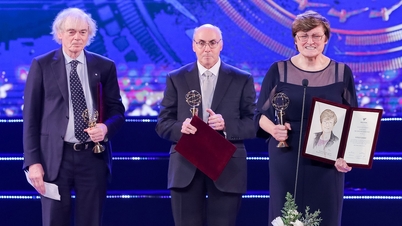


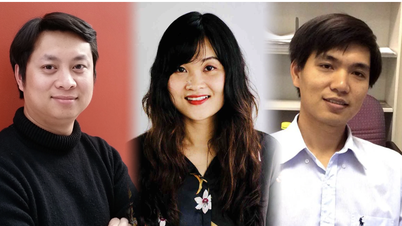

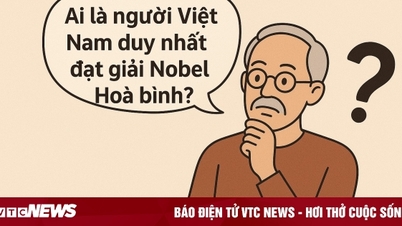
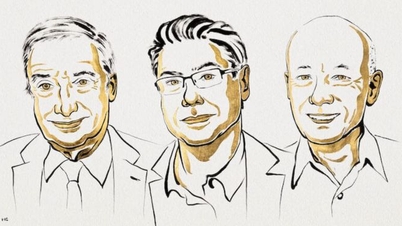



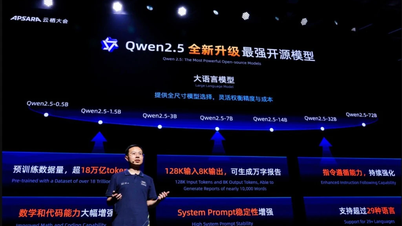






















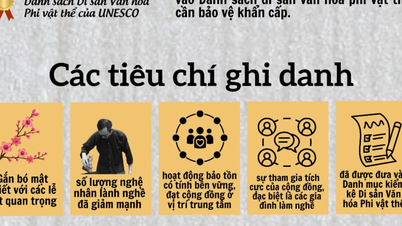











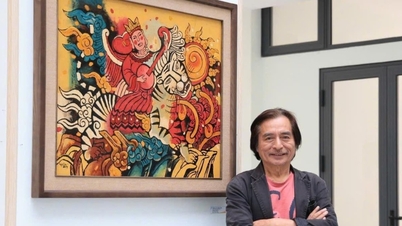

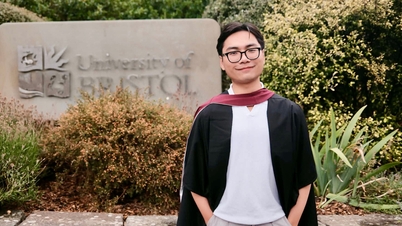
















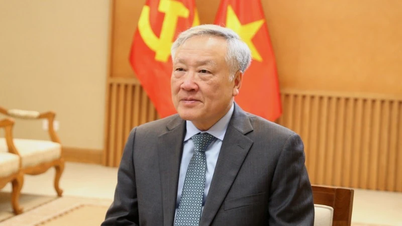
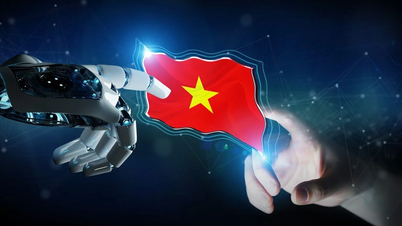
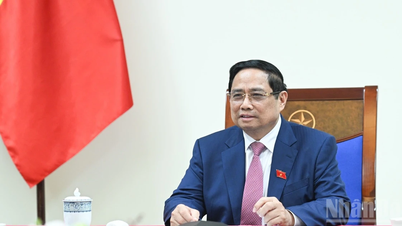



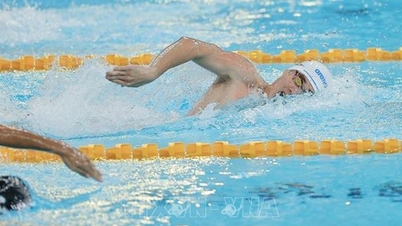



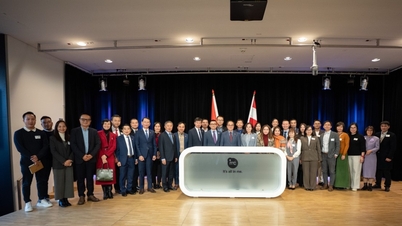






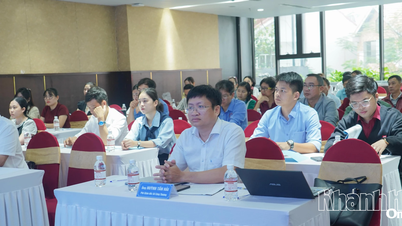

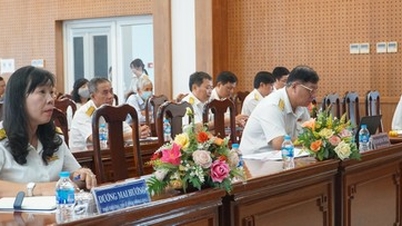




















Comment (0)